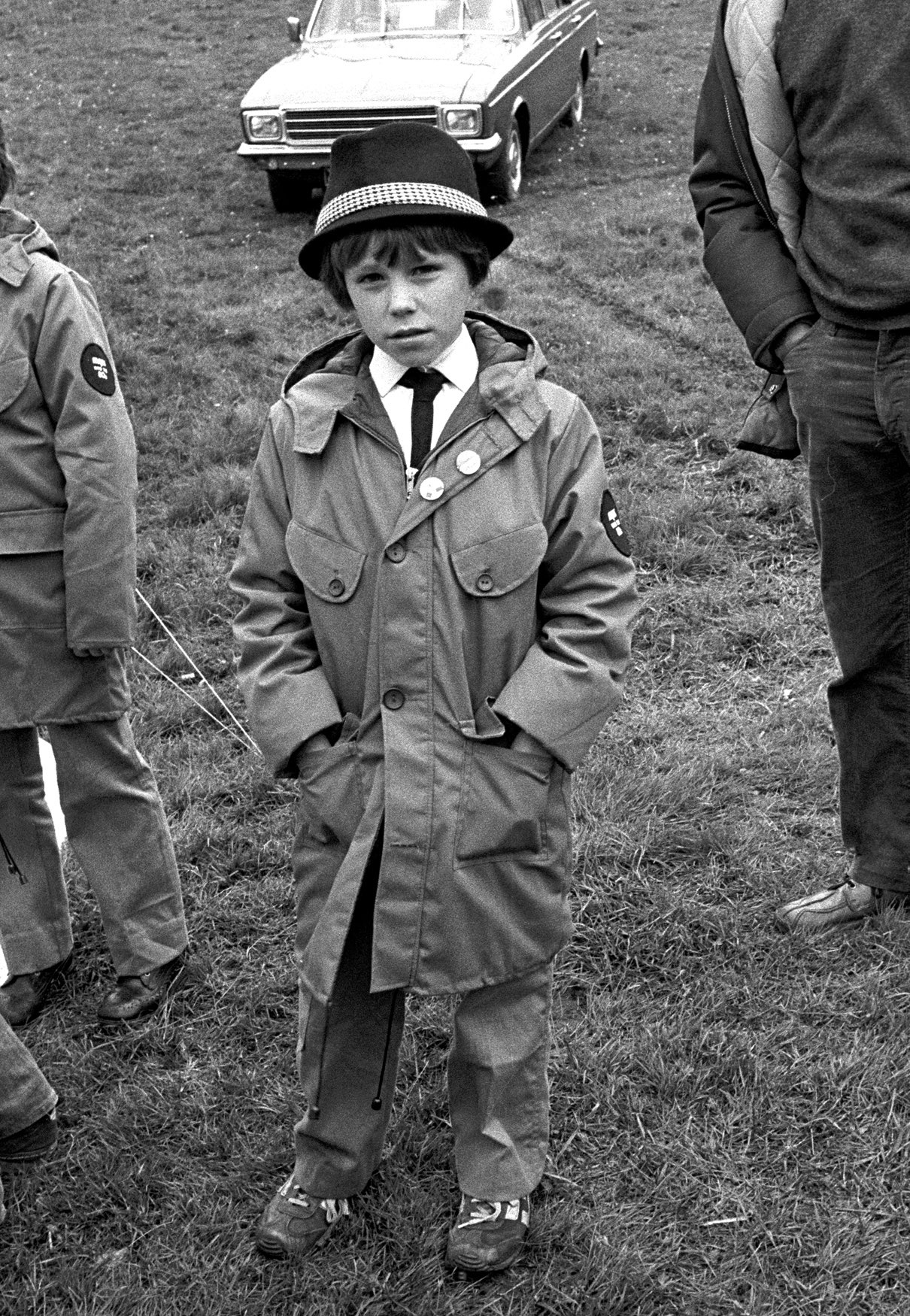Shooting the second wave of Britain’s mods and rockers
- Text by Miss Rosen
- Photography by Janette Beckman

Although her parents did not want her to be an artist, London native Janette Beckman convinced them to let her enroll on a foundation year at St. Martins School of Art in the 1970s. Once they agreed, Beckman moved to the South London neighbourhood of Streatham, where she paid £5 a week to rent a floor in a semi-squat inhabited by fellow art students.
Her love for portraiture led her to eventually take up photography at the London College of Communication. After discovering August Sander’s seminal monograph, People of the 20th Century, in the school library, Beckman began documenting the explosion of rebel culture in a series of street portraits made across the UK.
In Mods & Rockers Raw Streets UK 1979-1982 (Café Royal Books), Beckman takes us back to the second coming of these classic British subcultures – two groups who were, for a brief moment in time, each other’s natural enemies.
“Back in the ‘60s, the Mods and the Rockers used to have all these fights in Brighton,” Beckman says. “The Rockers rode bikes and the Mods rode their scooters, then they’d get together on the beach, get pissed, and battle each other. It was a huge scandal. It was an early youth rebellion.”
While America flourished after World War II, Britain lagged behind, rebuilding from the rubble of the war. Mods and Rockers initially took their cues from American fashion, music and film, until bands like The Who and The Jam came along and gave it a UK twist.

Islington Twins London 1981

Caister couple in parking lot 1980
By the late ’70s, a second wave had risen, fueled by kids old enough to rummage through their parents’ closets and don their highly prized garb. “Mod was a very sophisticated look,” Beckman says. “It was very different since it was happening in the time of punk, when people were literally cutting up garbage bags and putting them on with Doc Martens and an Army jacket.”
Beckman took her first youth culture portrait of the Islington Twins while teaching photography in East London in 1976 in East London, using a cheap Russian version of a Rolleiflex. She was wowed by their style and panache. “Mod clothes were very tailored: narrow trousers, skinny ties, and sharkskin suits,” she says. “It was a really smart look.”
Soon thereafter, Beckman discovered Rockabilly teen weekends at Caister-on Sea. “Kids would drive their best cars down there and bands would play,” Beckman says. “It would be on a dreary weekend when it was slightly raining and everyone would be eating fish and chips. Then, in the evening you’d get wasted on beer. You don’t need money to do it – you just get a leather jacket and dance.”
Beckman fondly remembers going to a Rockabilly night at an old dance club in the Strand with a bunch of friends during her art school days. She paired a black and green circle skirt with a sleeveless t-shirt that said “Elvis” in glitter and a pair of shoes with crystal plastic heels. “We would just go out there and dance with the old Rockers all night,” she remembers, fondly.

Phil from the Polecats, Caister 1980

Mod Girl London 1976

Islington Twins London 1979

Mod kid, Scotland 1981

Mods on scooter, Streatham 1976

Teddy Boy Caister 1980

Rockabilly Dance, Caister 1980
Mods & Rockers Raw Streets UK 1979-1982 is out now on Café Royal Books.
Follow Miss Rosen on Twitter.
Enjoyed this article? Like Huck on Facebook or follow us on Twitter.
You might like

In Medellín’s alleys and side streets, football’s founding spirit shines
Street Spirit — Granted two weeks of unfettered access, photographer Tom Ringsby captures the warmth and DIY essence of the Colombian city’s grassroots street football scene.
Written by: Isaac Muk

Remembering New York’s ’90s gay scene via its vibrant nightclub flyers
Getting In — After coming out in his 20s, David Kennerley became a fixture on the city’s queer scene, while pocketing invites that he picked up along the way. His latest book dives into his rich archive.
Written by: Miss Rosen

On Alexander Skarsgård’s trousers, The Rehearsal, and the importance of weirdos
Freaks and Finances — In the May edition of our monthly culture newsletter, columnist Emma Garland reflects on the Swedish actor’s Cannes look, Nathan Fielder’s wild ambition, and Jafaican.
Written by: Emma Garland

Youth violence’s rise is deeply concerning, but mass hysteria doesn’t help
Safe — On Knife Crime Awareness Week, writer, podcaster and youth worker Ciaran Thapar reflects on the presence of violent content online, growing awareness about the need for action, and the two decades since Saul Dibb’s Bullet Boy.
Written by: Ciaran Thapar

The UK is now second-worst country for LGBTQ+ rights in western Europe
Rainbow regression — It’s according to new rankings in the 2025 Rainbow Europe Map and Index, which saw the country plummet to 45th out of 49 surveyed nations for laws relating to the recognition of gender identity.
Written by: Ella Glossop

We are all Mia Khalifa
How humour, therapy and community help Huck's latest cover star control her narrative.
Written by: Alya Mooro

